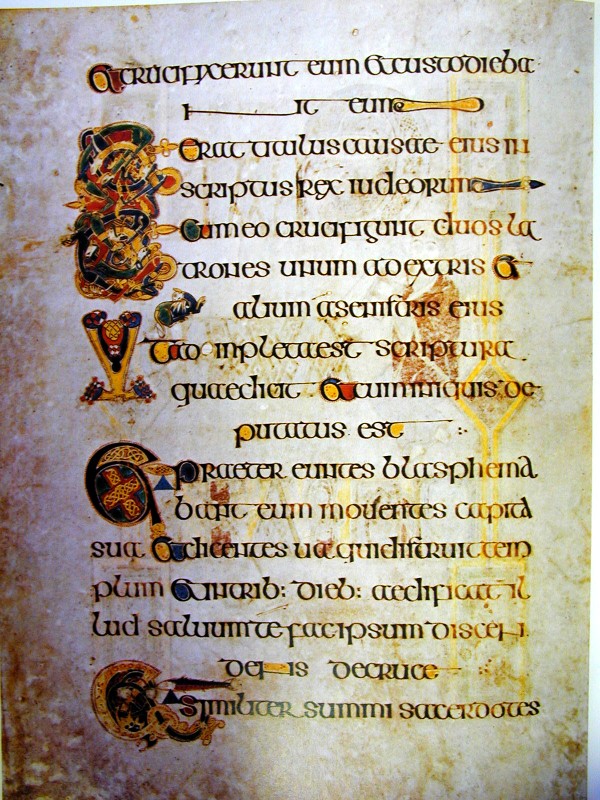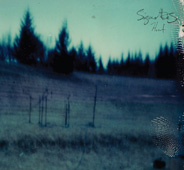Where Have You Been?

God is not concerned with where you have been. He loves you here and now.
This is a paraphrase of so much of what we, the Church, are preaching, at least in the West. The God we serve is not concerned with our past, with our sins of yesterday, with our baggage and our mess. Our manifesto is that of an animal: exclusively concerned with the present. An animal does not know much about Then, but only Now. This can be helpful in a number of ways, I would bet, given the Pharisaical stigma attached to the church. People anticipate being labeled and misunderstood at church. That’s the expectation we’ve earned. It’s been there so long the jokes have grown old. Go to some other church in another city, or turn on the AM preaching station for several hours, and you’re liable to hear the same comedic bombshells plunk across the airwaves.
“I know I’ve got to finish or the Methodists will get to Don Pablo’s first.”The lines have grown stale and musty, and well they should. Our pitifully backward concern with getting scoured and scrubbed up, “prayed up,” dressed up, and regimented up enough to come to the table of the Lord forgets the pointed story of the wedding guests. This one had some pressing business, this one a car to buy, this one was leaving town. “I’m sorry, I must…” ran the flippant backward glance, the parting shot that they all tossed over their shoulders like so much salt for good luck. I cannot come, instead I must do elsewise. So the master sends for anyone and everyone. The servants round up a couple necking in the park, a man riding the bus just to have something to do, an iron and square-framed business woman who just got demoted, a teacher, a midshipman, the miller’s scrawny lad, a mother and her daughter swept from the market with bread and celery in hand, the town drunk, and a man who can’t help but talk in rhymes. They tote them all out to the mansion, gathering the surprised and the curious along the way.
“There’s room at the cross, but not on the back pew with the deacons.”
“The young folks are doing interpretive movement; we don’t dance here, I know.”
We, in our expectation of cleanliness, forget this. We forget that cleanliness is only next to godliness in one drastically limited sense. Any parent who has wiped smeared cake from the face of a gleeful birthday boy has glimpsed the limits of the virtue of cleanliness. For he who wraps himself in zeal and lightning as a garment also bore the tongue-in-cheek purple of a mocking robe soon to be snatched and gambled away while he was beaten. The man himself died for all so that we might not be afraid to come to him. “How I have long to gather you,” he said, looking out over the city, the bitter turn of the bread of sorrow already on his tongue.
How then, can we say that Christ has no concern over our past? To say this is to render moot the bloodshed of the Rood, the parched throat and labored breathing, the betrayal in the garden, the silent refusal to defend himself, and the forgiveness he gave despite it all. Jesus came to die because of my past, my present, and my time to come. Necessitated by the very Love that hovered over void and formless water, then went jubilating the world into being, he sees at once all the time which I occupy. My past has not slipped his mind. Neither my tomorrow.
This device of acceptance – God not being concerned with your past – is not acceptance at all. To accept me without my faults is to accept me in part, to look at me as perfect by my own half-merit, without the blood of Jesus washing me clean. Love is not that easy, though. Simple, but not easy. If family life teaches us anything, it teaches us that love is rarely earned and never convenient. It is not because God is absentminded and needs an extra dose of Ginkgo Biloba that he accepts me, it is because He Loves me. In the course of time, he will bring me to face boldly the horrors of that very past that I trawl behind me like the polluted train of a wedding gown.
We are so concerned with everyone feeling accepted that we obfuscate the rules of acceptance, but the human heart will drag its dirty laundry with it everywhere until it is washed and put in order. Everyone comes with a hobble around his neck, and to say that when you come to church that you have left that behind you is an insult to the indefatigable memory of the subconscious and the unfathomed knowledge of God. I’ve been in worship services and been encouraged to leave my cares at the door. I believe that little could be further from the desires of the Almighty. A Hebrew towing an obstinate goat – indeed, a scapegoat – through the gates of the temple would certainly understand taking his sins and cares to church, and I think that was the intention. The Architect of that institution desired that we should understand the picture painted before us. Yes, we are come that He may deal with us, but He will deal with us in Love. It is not love in some vapid iteration of, “All is forgiven,” but Love which asks again, and then again, “Simon, son of John, do you love me?”
Yes, bring your past. He fears nothing, for none is His equal. Do not be afraid.










